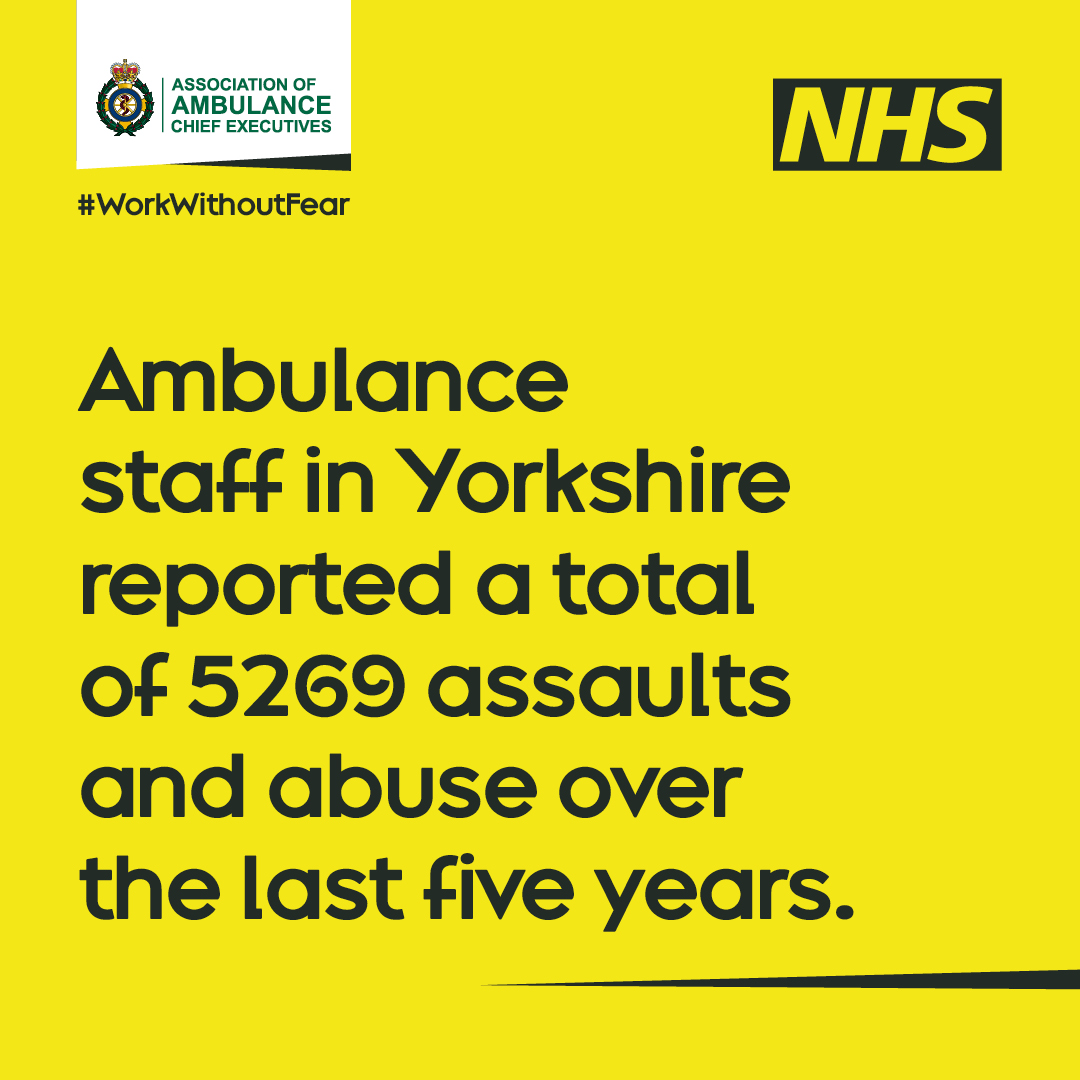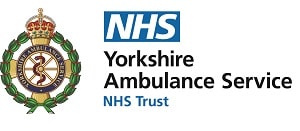Launch of national ambulance campaign #WorkWithoutFear
28 February 2022

Every day last year, a staggering 32 ambulance staff were abused or attacked across the country, and some of those who have been attacked or abused are leading a national campaign to promote respect in a bid to work without fear.
During 2020/21, 11,749 ambulance staff were abused either physically or verbally in England, which is an increase of 4,060 incidents compared to 2016/17. In the Yorkshire and Humber region, there has been a 75% rise in reported incidents of physical and verbal abuse towards staff in the last five years. (1,387 incidents in 2020/21 compared to 795 in 2016/17).
The most significant rise covered the initial period of the COVID-19 pandemic in 2020 when assaults across the country jumped up by 23% compared with the year before. They included kicking, slapping, head-butting and verbal abuse, and ranged from common assault to serious attacks involving knives and weapons. Alcohol is the most prominent factor in assaults against ambulance staff, followed by drugs and people in mental health crisis. Attacks based around race and sexuality have also increased as exacerbating factors in these assaults.
The Association of Ambulance Chief Executives – with support from NHS England - has today (28 February) launched the national #WorkWithoutFear campaign to highlight the profound impact of this abuse on the everyday lives of ambulance staff and to encourage the minority of people who might commit these offences to have respect for the people who are trying to help them, their friends and families when they need it most.
The campaign will feature several staff from all over the country who have been the victims of assault, including West Midlands Ambulance Service paramedics Deena Evans and Michael Hipgrave, who saw their attacker jailed for nine years after he stabbed them as they went to help him in Wolverhampton in July 2020.
Nick Smith, Executive Director of Operations at Yorkshire Ambulance Service NHS Trust, said:
“Our staff are here to help people when they are most in need and, very sadly, they face the possibility of violence, assault and aggression every time they start a shift. When they occur, these verbal and physical attacks can have a significant and lasting impact on individuals, affecting all aspects of their lives. Despite this, ambulance service colleagues continue to show dedication in turning up for work to care for patients and serving their local communities.
“We very much hope this campaign raises awareness of the impact of this appalling behaviour on individuals, highlights how unacceptable violence and aggression are in any form and ensures that our staff are treated with the respect they deserve.”
People are being urged to pledge their support for this campaign by using #WorkWithoutFear on social media and by visiting www.aace.org.uk/vaa to view films about some of those affected.
ENDS
Notes to editors
1. Body worn cameras: Thousands of ambulance crews across the country, including colleagues at Yorkshire Ambulance Service NHS Trust, are being provided with body cameras as part of an NHS crackdown to reduce attacks on staff. Following successful trials in London and the North East, the NHS in England is rolling out the cameras to crews in the 10 ambulance trusts across the country – three years ahead of the NHS Long Term Plan target. Medics will wear the cameras and be able to press a button to start recording if patients or the public become aggressive or abusive, with filming made available to police where needed.
2. Campaign collateral: We have developed an online campaign resource centre which can be used to download campaign materials at https://vaa.aace.org.uk such as images, films, posters, social media posts, key data about assaults including headline facts and figures during the past five years, and other assorted campaign graphics.
3. The Association of Ambulance Chief Executives (AACE) is a membership organisation providing ambulance services with a central body that supports, coordinates, and implements nationally agreed policy. The primary focus of AACE is the ongoing development of the UK ambulance service and the improvement of patient care. Aside from this, the organisation provides the general public and other stakeholders with a central resource of information about UK ambulance services. AACE also engages in carefully chosen commercial support activities designed to help improve ambulance services in general, both at home and abroad. More information is available at www.aace.org.uk The AACE logo is also available upon request.
4. The NHS England and NHS Improvement (NHSEI) Health & Wellbeing (Violence Prevention & Reduction) Team is part of the NHSEI’s People Directorate. The primary aim of the NHS violence prevention and reduction programme is for NHS staff to feel supported, safe and secure at work. The programme is an integral part of the NHSEI Long Term Plan and NHS People Plan health and wellbeing offer, where every member of staff has the fundamental right to be safe at work. The safety and health of our people is paramount. Leaders across the NHS have a statutory duty of care to prevent and control violence in the workplace, so that people never feel fearful or apprehensive about coming to work (NHS People Plan 2020-21).
Produced by: Corporate Communications Department

